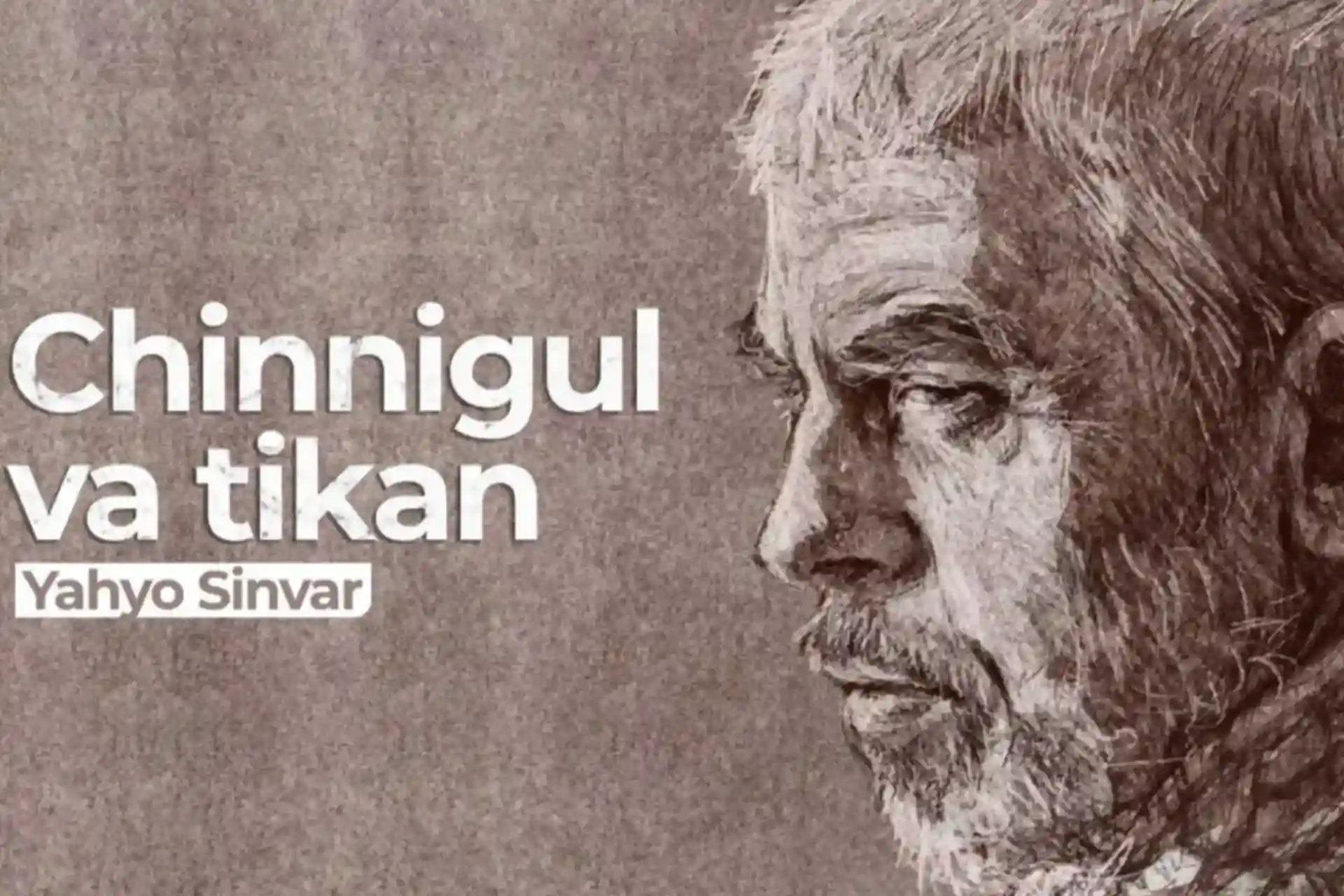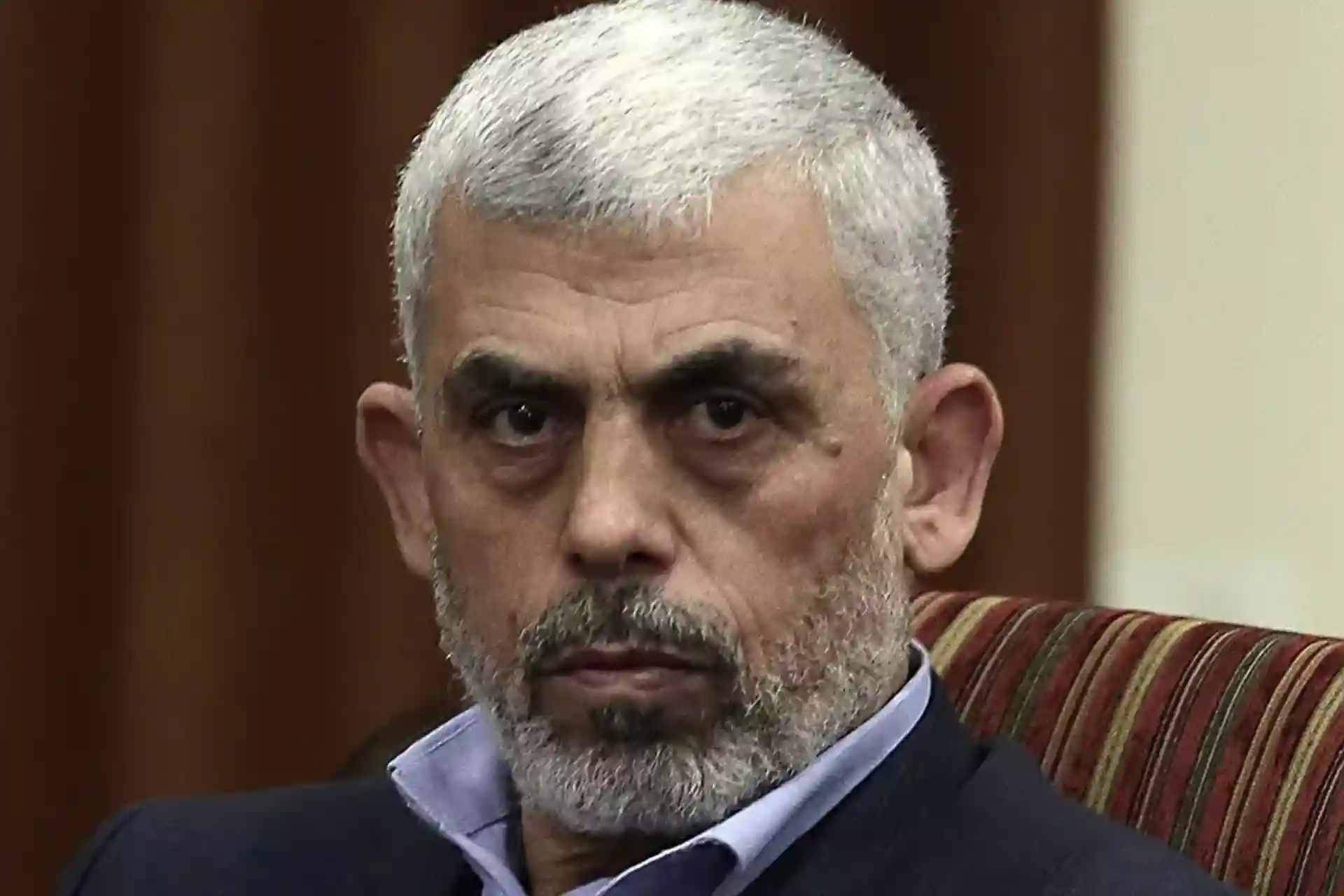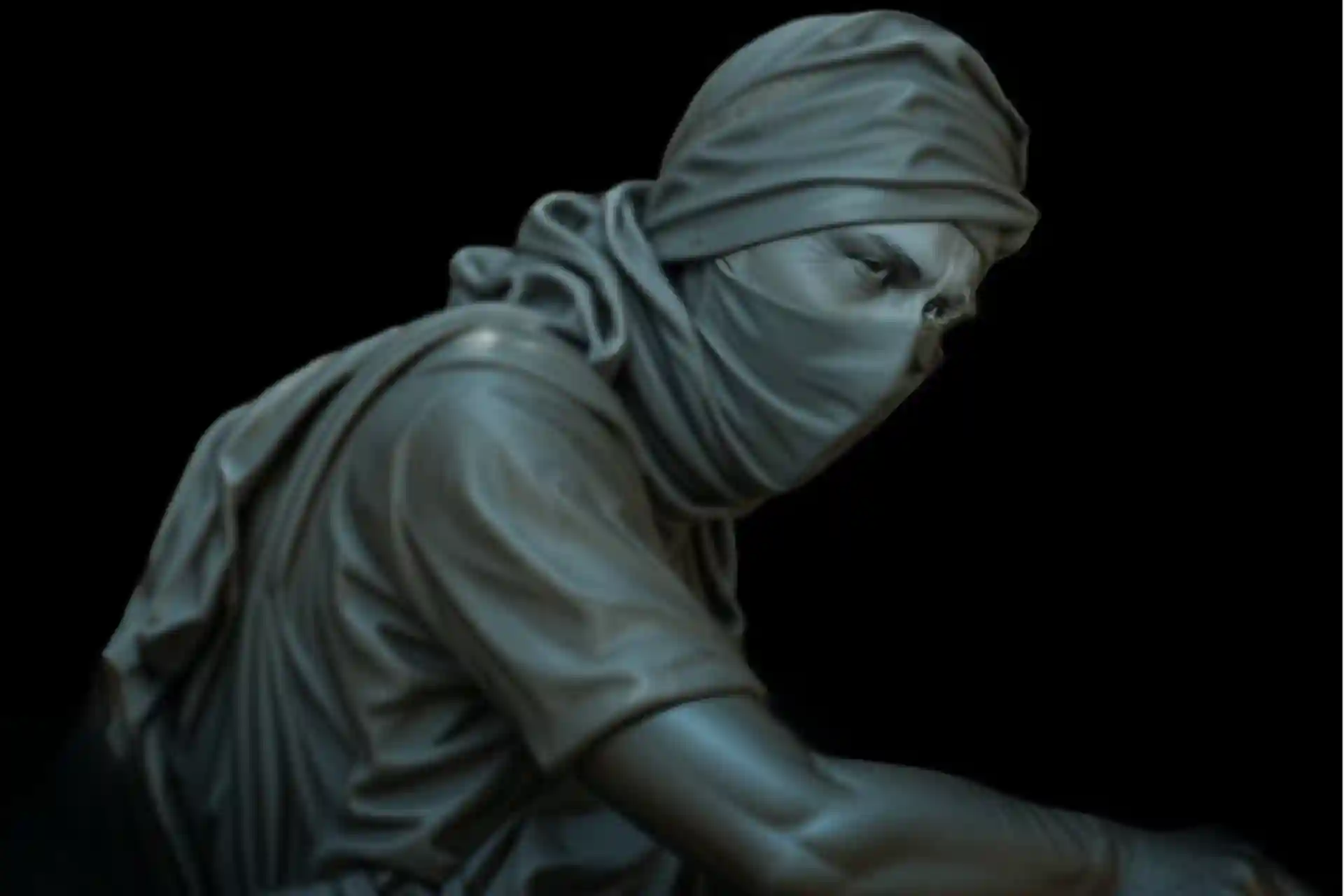"The Carnation and the Thorn" – Yahya Sinwar (story, part 23)
Season Ten
My brother Mahmud came home from school for summer vacation and was accompanied by a young man on one of his trips. was. During the investigation, a letter was found with a list of those who were members of the Fatah movement branch in Egypt. This list also included my brother Mahmoud's name. The letter stated that those listed were participants in the operation in Gaza. My brother Mahmoud was arrested based on this letter. The interrogation room in the center of Gaza was called " Kushkhana " because they tortured suspects by cutting, chopping, and stabbing them. The interrogation room consisted of a building about four meters wide and twenty meters tall . It had doors of various sizes, and interrogations were conducted behind these doors. There was a long corridor inside the building. Those brought in for interrogation were made to sit on this corridor or face the wall with their hands tied behind their backs. They put sacks over their heads that covered their shoulders. The soldiers walked among them, kicking and slapping them. If someone fainted or started to lose consciousness , they would pour cold water over them. From time to time, they would drag one prisoner into one of the rooms and take them inside. In that room, several interrogators who spoke broken Arabic would meet them. They would again ask them thousands of questions and beat them continuously. One of the interrogators would play the role of a friend to the suspect. He would pretend to feel sorry for him and try to comfort him with sweet words. He would shout at the interrogators who were beating him, "Stop! That's enough.. Are you so cruel?! I'll talk to him myself, run away, everyone! Stay away!" If the others tried to attack him, he would protect them and block them.
- Let him talk. What do you achieve by beating him?! He's trying to confess his guilt. What's the point of torturing him?!
He would send the others outside and start talking sweetly. He would hand them tobacco, light a match, pour them tea, and assure them that they knew everything, that he would not put himself through so much torture, that he would force the wicked outsiders to take over anyway. If the plan worked, he would ask them to write it down. If it didn't, he would leave it to the outsiders again.
The prisoner has a bag on his head, his hands are handcuffed behind his back. One of the interrogators sits on his chest and begins to strangle him. He pours water over the bag on his head. The second sits on his stomach. The third sits with his legs spread out on either side, with a stool between them, and crushes his testicles with his feet. The other two hold his legs tightly . This is the first stage of torture. Then they move on to the second stage . The first stage is continued by making him lie on the table. Then they tie his handcuffed hands to a wire and hang him from the ceiling. In this position, the tips of his toes barely touch the ground. In this case, they then punch him in the stomach and kick him anywhere on his body. They pour cold water on him and turn on the fan. In this position, the prisoner shivers from the cold, his body freezes like ice.
All the above-mentioned torture methods were also used on my brother Mahmud. The torture was so severe that there was no part of his body that was not bruised. His appearance was almost unrecognizable. He lived in that " Kushkhona " for forty days without eating properly, sleeping well, or washing. If there was a risk of death as a result of the severe torture, they would take him down and put him in a dungeon. This one and a half meters wide and two meters long Five or six people were lying in a narrow room . They all suffered from insomnia and brutal torture. They leaned against each other and fell into a deep sleep. Then they woke up again in the hands of the executioners. They were taken out and interrogated again.
My brother Mahmud did not confess to anything for several weeks. They interrogated me, saying that they had found a list of members of the movement among the students, and that his name was on the list. My brother Mahmud vehemently denied it, saying that it was all a lie . When he did not confess, they tortured him repeatedly.
My brother finally realized that they would not leave him alone. So he confessed that a person had recruited him into the Fatah movement, saying that they should contact him when they returned to Gaza. Even if he said that was all he had said, the interrogation would start again: " Did you use weapons?", "What was your assignment?", "Who else joined?", "Did you invite others to do this? Who are they?" They would ask him thousands of questions. If he refused to answer the questions, they would subject him to even more severe torture. After that, Mahmoud regretted taking the first charge. He was tortured again and again, and was sentenced to a longer term. The harsh voices of the interrogators from the "cabin" and the screams of those being interrogated would not stop day or night.
For forty days, the investigators could not get any more information from my brother. They put him in a cell for a week or two. Then he was sent to a regular prison. In one of the prison departments, they put him in a prisoner's uniform and put him in a room with twenty people. There, the Palestinian brothers warmly welcomed him. Everyone introduced themselves and talked about who they were from, where they were from, how long they had been in prison, and what slander they had been imprisoned for. My brother Mahmoud's main concern was to see us as soon as possible . He wanted to reassure us by saying that he was still alive and that he had not been given a long sentence like the others. He asked his roommates when he could meet his family. They said that they could meet on the first Friday of every month. My brother Mahmoud, whose longing was erupting like a volcano, realized that he had two more weeks to see us. My mother would gather information from her neighbors, especially our neighbor Umm Abd, about what she could take when she went to visit her relatives who were in prison, and whether they would let her in if she brought food and clothes. Only three people could go with her on the pilgrimage. Two adults and a young child, or three adults. We discussed a lot about who would go with her . Everyone wanted to go together. Finally, my mother said that my sister Fatima, Maryam, and I would go. My brother Hassan got angry . He jumped up from his seat and said, "Why don't I go?!"
My mother explained that it was their first time meeting, and that if she went, she might get into a fight with the soldiers, and that she was afraid that they would cancel the meeting with my brother Mahmud. My brother Hassan, who was a bit of a troublemaker, had grown up, had developed muscles, and had a deep voice , and could have easily lost his temper if she had been a little bit upset. Unable to resist my mother's advice, he reluctantly agreed to stay.
To be continued…



